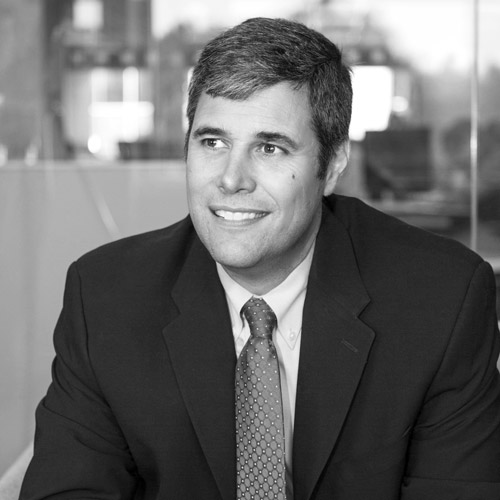When David Roland steps into the offices of Diamond Offshore Drilling, his day could go in a number of different directions. After all, at any given moment he’s a business leader, a people manager, or a chief legal officer.
Roland’s official title is senior vice president, general counsel, and secretary for Diamond Offshore Drilling, a leader in the offshore drilling industry that provides contract drilling services to the global energy industry. He’s responsible for ensuring Diamond Offshore operates lawfully at all times, and he provides legal advice on a wide variety of topics, usually with no advanced notice and without the benefit of any prior research or preparation. That being said, he still needs to fully understand all business implications and risks of said advice.
Roland leads a department of eleven professionals, including five other lawyers, and faces the challenges that every manager confronts, including how to effectively motivate and enable each employee to grow and develop. As general counsel, Roland is also in a position where he’s expected to display unquestioned integrity and ethics at all times.
“Perhaps more than any other employee without the title of CEO, I believe the general counsel sets the ethical tone for a company,” Roland says. “I firmly believe not all unethical companies have unethical general counsels, but I also firmly believe that an unethical general counsel will almost assuredly result in an unethical company. When you combine all of that together, in order to be truly effective, the general counsel has to find a way to be both a lawyer and senior management.”
Roland admits that his function as a manager over the past two years has been particularly challenging because of a severe downturn in the oil and gas industry. Similar to other companies in the industry, Diamond Offshore has dealt with cost-cutting, including layoffs. “It’s a unique time in the oil and gas industry right now,” he says. “As a result, we’ve had many difficult discussions with our clients and vendors over the last two years, probably some of the most difficult interactions I’ve experienced in my career.”
However, if there’s anyone who can navigate a team through turbulent waters, it’s Roland, thanks to his background and experience. After law school, he served a one-year appointment to work for the Texas Supreme Court, a job for which he was grateful. It certainly started his career off on a positive note. “My time at the Supreme Court served as a great transition,” he says. “Going from law school straight to a law firm is often difficult. Working as an attorney for the court was a nice transition from law school to the real world of demanding hours, high pressure, and difficult work at a large law firm.”
After his stint with the Texas Supreme Court, Roland worked as an associate at a large law firm for six years until the early 1990s, when many of the larger firms began laying off lawyers, including young partners. The layoffs left him contemplating going in-house, so he left the firm to join Caltex Corporation, a large oil refining and marketing company. Four years later, Caltex decided to move its corporate headquarters from Texas to Singapore, so, rather than move overseas, Roland accepted a job as a lawyer at the then-thriving corporate headquarters of Enron Corp. After six years, including working through one of the largest bankruptcies in US history, Roland joined ION Geophysical Corporation as general counsel, where he remained for more than a decade.
When he received an offer to join Diamond Offshore as general counsel, he made the move not only because Diamond was a larger company with a stronger balance sheet, but also because he thought it was a good time to make a change. “Once you are doing the same thing for ten years, you often need to be challenged professionally,” he says.
As his career progressed, so too did his levels of responsibility. He attributes much of his success to being able to stay in each position for a sufficient amount of time before being elevated to the next level. Combine the gradual buildup in responsibility with working alongside talented lawyers and other professionals, and it’s easy to see why Roland has found the success he has today.
“I’ve been blessed to have worked for and with some really tremendous lawyers and individuals,” he says. “I believe role models are important, and I’ve had an abundance of fantastic role models throughout my career. I’ve also had the luxury of experiencing a gradual upward trend in responsibility during my career. I can’t imagine being an in-house lawyer without first having spent six or seven years at a large law firm learning from great lawyers. Each of those experiences prepared me for my next experience. As a result, I never once felt like I was diving into the deep end of the pool.”
Working for decades in a variety of different law environments has allowed Roland to develop his own distinctive brand of leadership, which for him revolves around a hands-off approach. He tries to employ the most effective and experienced professionals he can find, then delegates broad responsibilities and authorities to them. He also allows his staff to interact directly with their in-house clients, with minimal supervision from him.
“I allow and expect my lawyers to lawyer,” he says. “Of course, I remain available for general direction, advice, and input. But I don’t like to micromanage my employees. Before I became a general counsel, I was always most satisfied when I was treated as a professional and given the authority to define and perform my job in the manner I felt most effective, with minimal supervision. So, I’ve learned that lesson and tried to allow my group the flexibility to do the same.”

